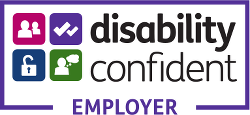Job summary
- Main area
- Physiotherapy
- Grade
- NHS AfC: Band 8a
- Contract
- Permanent
- Hours
- Full time
- Job ref
- 877-SSPCN-7578817
- Employer
- NHS Midlands and Lancashire Commissioning Support Unit
- Employer type
- NHS
- Site
- South Sefton Primary Care Network
- Town
- Bootle
- Salary
- £57,888 - £64,880 Aligned to band 8a + 5% leadership allowance
- Salary period
- Yearly
- Closing
- 07/11/2025 23:59
- Interview date
- 13/11/2025
Employer heading

Lead First Contact Physiotherapist Practitioner
NHS AfC: Band 8a
Job overview
South Sefton Primary Care Network (PCN) is seeking a Lead First Contact Physiotherapist (FCP) Practitioner to champion innovation, elevate clinical standards, and shape the future of musculoskeletal (MSK) care within our community.
In this pivotal role, the Lead FCP Practitioner will be responsible for delivering advanced MSK assessment, diagnosis, and management at the initial point of contact in primary care—ensuring patients receive timely, expert support without the need for GP referral.
Main duties of the job
The post holder will provide advanced clinical expertise and leadership across the PCN, supporting the development, implementation and evaluation of a high-quality FCP service. This will include leading on service integration, workforce development and collaboration with wider system partners to ensure patients receive timely, safe and effective care.
A key aspect of the role will be improving the integration of Phio digital pathways to enhance triage and treatment, ensuring patients are directed to the most appropriate intervention at the earliest opportunity. By embedding digital solutions alongside face-to-face care, the Lead FCP will help optimise clinical capacity, patient experience and outcomes.
The role combines clinical practice with service leadership, quality improvement and education, ensuring the FCP service contributes effectively to the PCN’s vision of proactive, population-focused and integrated neighbourhood care.
Working for our organisation
South Sefton Primary Care Network (PCN) is a large Primary Care Network, covering four localities in South Sefton with a population of around 160k.
PCNs are groups of GP practices working with a wide range of partners to improve the health of their population. Key to this purpose is strengthening general practice provision through working together, where it makes sense to do so and working as part of integrated care teams which work collaboratively for and with local people in each locality.
Sefton Primary Healthcare is a GP Federation made up of practices in South Sefton. A GP Federation is a group of general practices that work together to share resources, expertise and services to deliver high quality, patient focused services for it communities.
As a federation we work together to offer additional and improved services to meet the needs of our residents. We work together to provide support for our practices through the sharing of resources and services, for example with recruitment and training. We hold regular member practice meetings to come together and raise issues and review our priorities and progress. We work closely with South Sefton Primary Care Network to improve the local health and care offer of our residents.
The two organisations have recently joined together in a single legal entity and it is envisaged that this role will work across both PCN and Federation priorities as we bring these together.
Detailed job description and main responsibilities
Clinical Practice
1. Act as an autonomous, expert clinician in the assessment, diagnosis, triage, and non-surgical management of MSK conditions, as a first point of contact for patients, without prior GP referral.
2. Utilise differential diagnosis skills to rule out serious pathology, formulate management plans, and refer appropriately (e.g. for imaging, specialist opinion, red flag conditions).
3. Use clinical reasoning to decide on investigations, interpret results, and integrate findings into management plans.
4. Provide a mix of interventions: manual therapy, exercise prescription, activity advice, injection if qualified, pain education, self-management strategies.
5. Integrate Phio digital pathways into clinical workflows — e.g. review and act on Phio-generated triage outputs, ensure digital assessments feed into clinical decision-making, and ensure seamless transitions between digital and face-to-face care.
6. Monitor patient progress, adjust management plans, and discharge or refer on when clinically appropriate.
7. Maintain accurate, timely clinical records consistent with organisational, legal, and regulatory standards.
8. Support continuity of care, including collaboration with GPs, community services, and secondary care teams.
Service Development, Integration & Improvement
1. Lead the design, development and expansion of the FCP service across the PCN, aligning with neighbourhood care strategies and the pioneer neighbourhood model.
2. Embed and optimise Phio’s digital triage and treatment pathways within the broader MSK service — identifying opportunities for improving patient flow, reducing duplication, and enhancing efficiency.
3. Work collaboratively with PCN leadership, GP practices, ICB/ICS, community services, and specialist providers to co-design integrated MSK pathways.
4. Monitor activity data, clinical outcomes, patient experience, waiting times and other performance metrics; use this data to drive continuous quality improvement.
5. Lead audits, service evaluations, and project work (e.g. pilots, pathway redesign).
6. Provide oversight of resource allocation, capacity planning and service resilience.
Leadership, Supervision & Team Development
1. Provide clinical leadership, mentorship, supervision, and performance support to other FCPs, physiotherapists, and MSK staff within the PCN.
2. Lead or facilitate regular team meetings, case reviews and clinical governance forums.
3. Support recruitment, induction, and ongoing professional development of MSK staff.
4. Act as a role model, promoting innovation, evidence-based practice, and quality improvement culture.
Education, Training & Knowledge Sharing
1. Deliver training and educational sessions to GPs, practice teams, allied health professionals, and other ARRS roles on MSK assessment, pathways, use of Phio/triage tools, referral criteria, etc.
2. Act as a clinical supervisor or mentor to FCP trainees, students or less experienced physiotherapists.
3. Contribute to the development of learning materials, guidelines, protocols and standard operating procedures.
4. Keep abreast of emerging evidence, best practice, and innovations in MSK care and digital health, and disseminate learning across the PCN.
Governance, Quality & Risk Management
1. Lead on clinical governance for the FCP service: incident reporting, complaints handling, audit, risk management, safe practice, and escalation processes.
2. Ensure compliance with regulatory and professional standards (HCPC, CSP, data protection, equality & diversity, safeguarding).
3. Participate in peer review, quality assurance, and continuous professional development.
4. Ensure that service protocols, policies, and pathways are up to date, evidence-based, and aligned with local and national guidelines.
5. Support risk assessments and ensure proactive mitigation of clinical, operational or digital risks (e.g. in the interface between Phio and face-to-face care).
Population Health & Strategic Contribution
1. Use population-level data and intelligence to identify MSK needs and inequalities in the PCN population, helping to target services or outreach.
2. Contribute to strategic planning, commissioning processes, and system-level decision-making around MSK services and digital innovation.
3. Engage with patient and public involvement (PPI), feedback loops and co-design principles to refine the service.
4. Represent the FCP service in forums, meetings or committees across the PCN, neighbourhoods, and ICS/ICB structures.
Person specification
Skills and Abilities
Essential criteria
- Highly developed clinical reasoning and advanced MSK assessment, diagnosis and treatment skills.
- Ability to work autonomously, making safe, evidence-based decisions under pressure.
- Strong leadership, coaching and mentoring skills with the ability to support a team.
- Excellent communication and interpersonal skills, with the ability to engage and influence patients, colleagues and system partners.
- Competent IT skills with electronic record systems, audit tools and digital platforms.
- Ability to manage competing priorities, deliver outcomes to deadlines, and adapt to changing service needs.
Desirable criteria
- Proven ability to integrate digital solutions (e.g. Phio) into clinical pathways and workflows.
- Advanced skills in clinical supervision and education delivery.
Experience
Essential criteria
- Significant post-registration experience in MSK physiotherapy, including primary care or community settings
- Experience of leading service development or quality improvement initiatives.
- Track record of working collaboratively in MDTs across health and care.
- Experience of providing clinical supervision, mentorship or education to physiotherapists or other clinicians.
Desirable criteria
- Experience of working within a Primary Care Network, GP practice, or equivalent primary care environment.
- Involvement in pathway redesign, digital integration projects or population health approaches.
Knowledge, Qualifications and Training
Essential criteria
- Degree in Physiotherapy (BSc/MSc or equivalent).
- Current registration with the Health and Care Professions Council (HCPC).
- Evidence of advanced MSK practice – e.g. MSc in Advanced Clinical Practice, Stage 3 FCP Roadmap to Practice, or equivalent portfolio of evidence.
- Demonstrated knowledge of MSK pathology, red flag recognition, imaging and pharmacology relevant to advanced practice.
- Evidence of continuous professional development (CPD), maintaining up-to-date knowledge of MSK practice, digital health and national policy.
- Understanding of clinical governance, safeguarding, information governance and professional accountability.
- Independent Prescribing qualification (V300) or commitment to achieving this within a defined timeframe.
Desirable criteria
- Postgraduate training in injection therapy, imaging interpretation, or other extended scope skills.
- Leadership or management training/qualification.
- Research training or published work relevant to MSK/primary care.
- Training in digital health applications (e.g. triage platforms such as Phio) or service redesign.
Applicant requirements
You must have appropriate UK professional registration.
This post is subject to the Rehabilitation of Offenders Act 1974 (Exceptions) Order 1975 (Amendment) (England and Wales) Order 2020 and it will be necessary for a submission for Disclosure to be made to the Disclosure and Barring Service.
Documents to download
Further details / informal visits contact
- Name
- Rachel Stead
- Job title
- PCN Strategic Manager
- Email address
- [email protected]
List jobs with NHS Midlands and Lancashire Commissioning Support Unit in Allied Health Professions or all sectors






